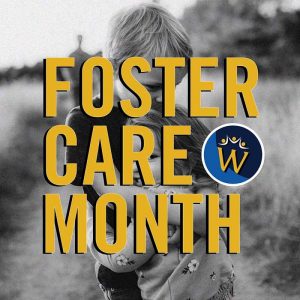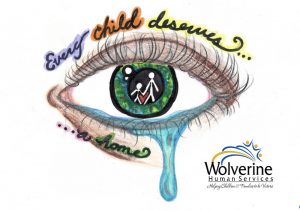
Happy Foster Care Month!
This May, we are excited to bring awareness to the need for foster parents for over 12,000 youth in foster care throughout the state of Michigan. Children in foster care have different stories, and backgrounds. With such diversity comes the commonality of each child’s past which often times includes abuse and neglect. Based on recent studies by Children’s Defense Fund “1,844 children are confirmed abused or neglected each day”.
This month, our goal is to provide a platform for the voices of foster children and parents to express the need for safe and stable environments. In order to bring awareness to this need, we must strive to understand that foster children may hold on to a past full of pain and hurt. Our foster homes are designed to provide safe spaces for healing both physically and mentally.
Join us in gaining an understanding of abuse and neglect while advocating for the needs of foster children.
What is abuse and neglect in foster care?
Abuse is the intentional, but harmful treatment of a child from an adult. This can take place in a few different forms including physical, sexual and substance abuse.
Neglect is when an adult does not fulfill their responsibilities to provide care for a child. This can take place when an adult fails to monitor or provide the basic needs of a child including food or education. Neglect can also be identified when an adult does not report ongoing abuse or exposes a child to harmful substances or situations.
What are the main reactions that foster children display when processing past abuse and neglect?
Children in foster care may interact and react to situations taking place in their life in unique ways, because of their past abuse and neglect. To provide awareness and great care for foster children, we must not expect those in foster care to always react to situations of life in customary fashions.
Some of the ways which foster children will interact and react while processing what has taken place in their life in the past can include:
- Fight or Flight: Running away from a situation or releasing emotions inappropriately
- Protectiveness: Children stepping into the role of the parental figure in their home
- Clinging: Wanting to always be with a parent or caregiver
 How can I help a child in need?
How can I help a child in need?
Join Wolverine in advocating for children in foster care by bringing awareness and providing care for children of all ages.
Please consider supporting Wolverine’s foster care program by purchasing a Foster Care Month T-Shirt designed by a young artist in our care (see design). Funds raised for each t-shirt sale will directly benefit children and families in our care with necessities needed such as car seats, pack-n-plays, clothes, safety items, household items, and more. Thank you for your support together we are Helping Children and Families to be Victors!
To learn more about how you can provide care for a foster child, please complete the Care Provider Form below.
